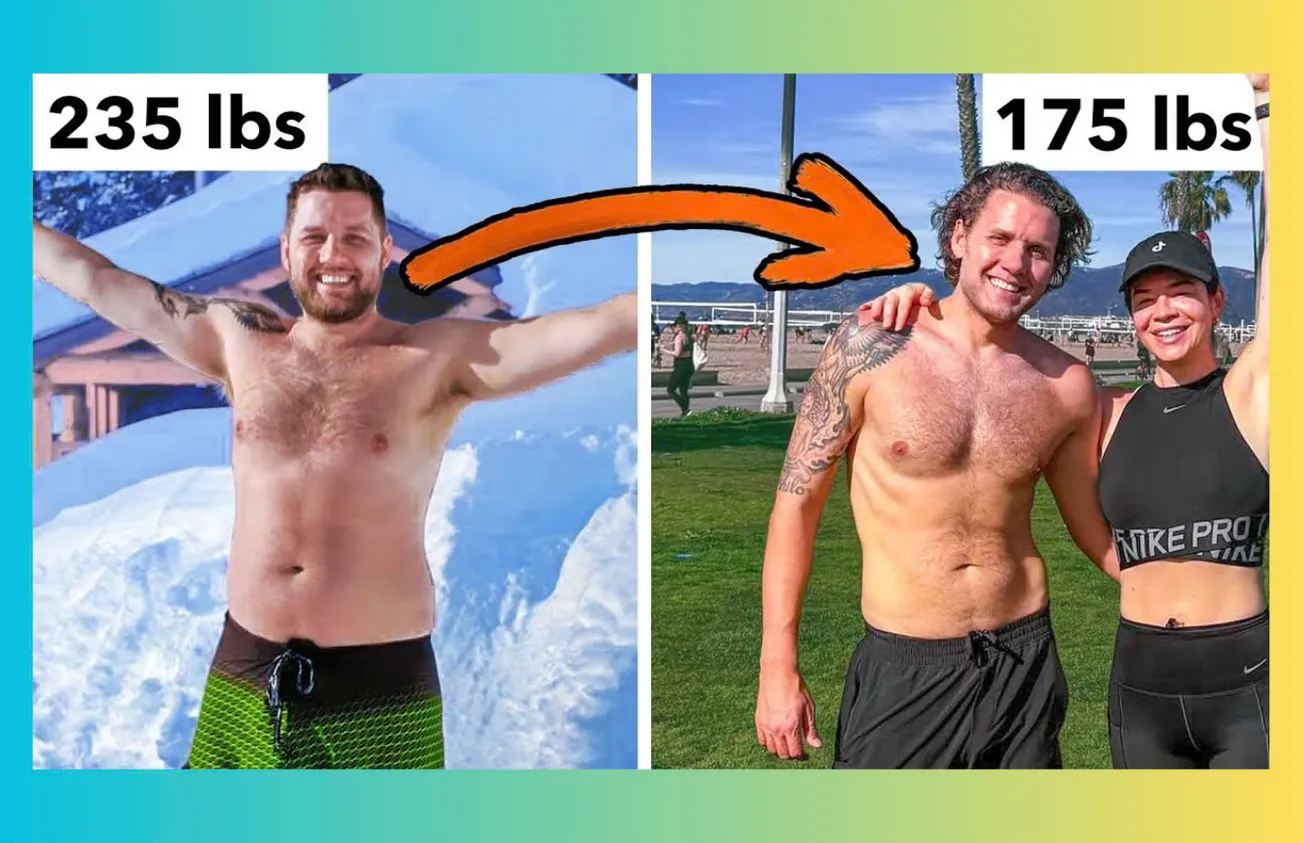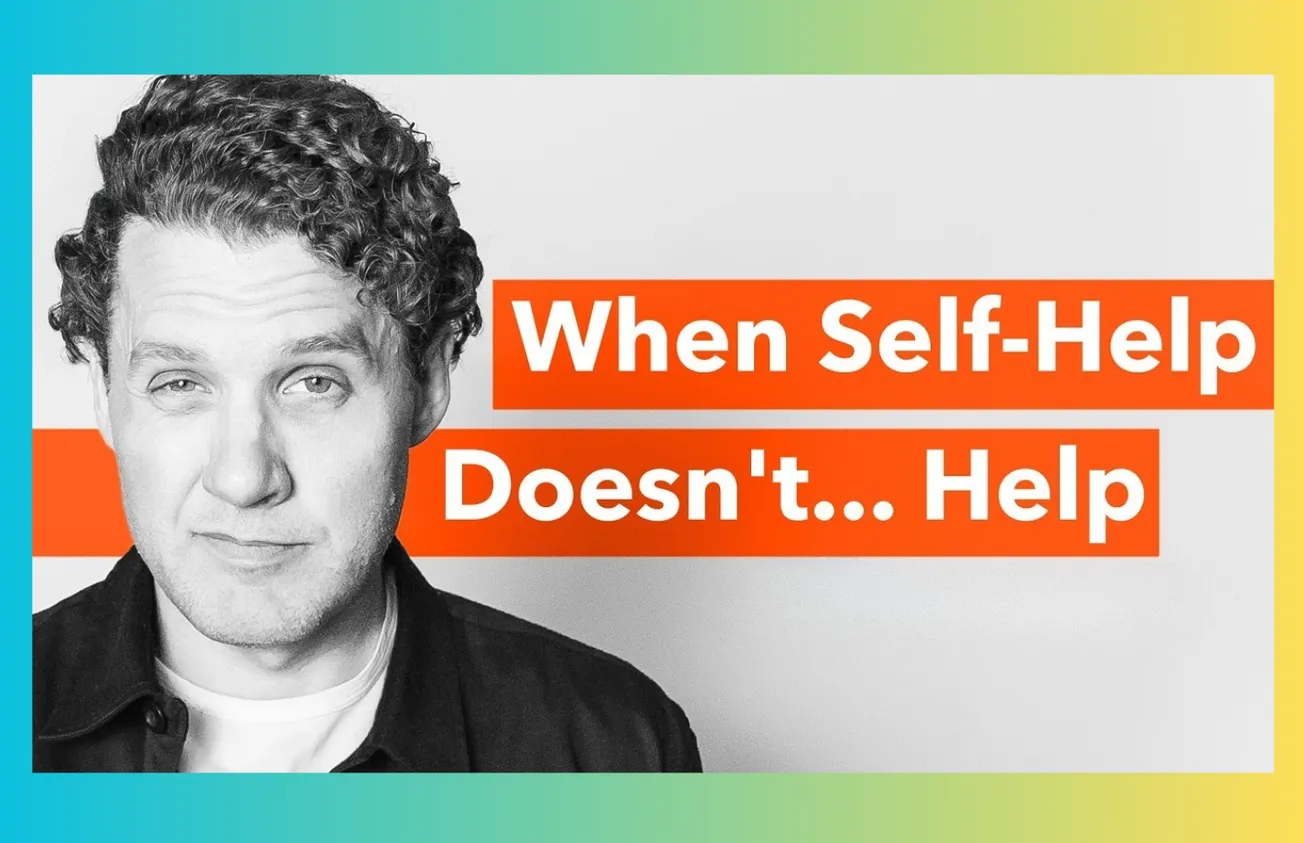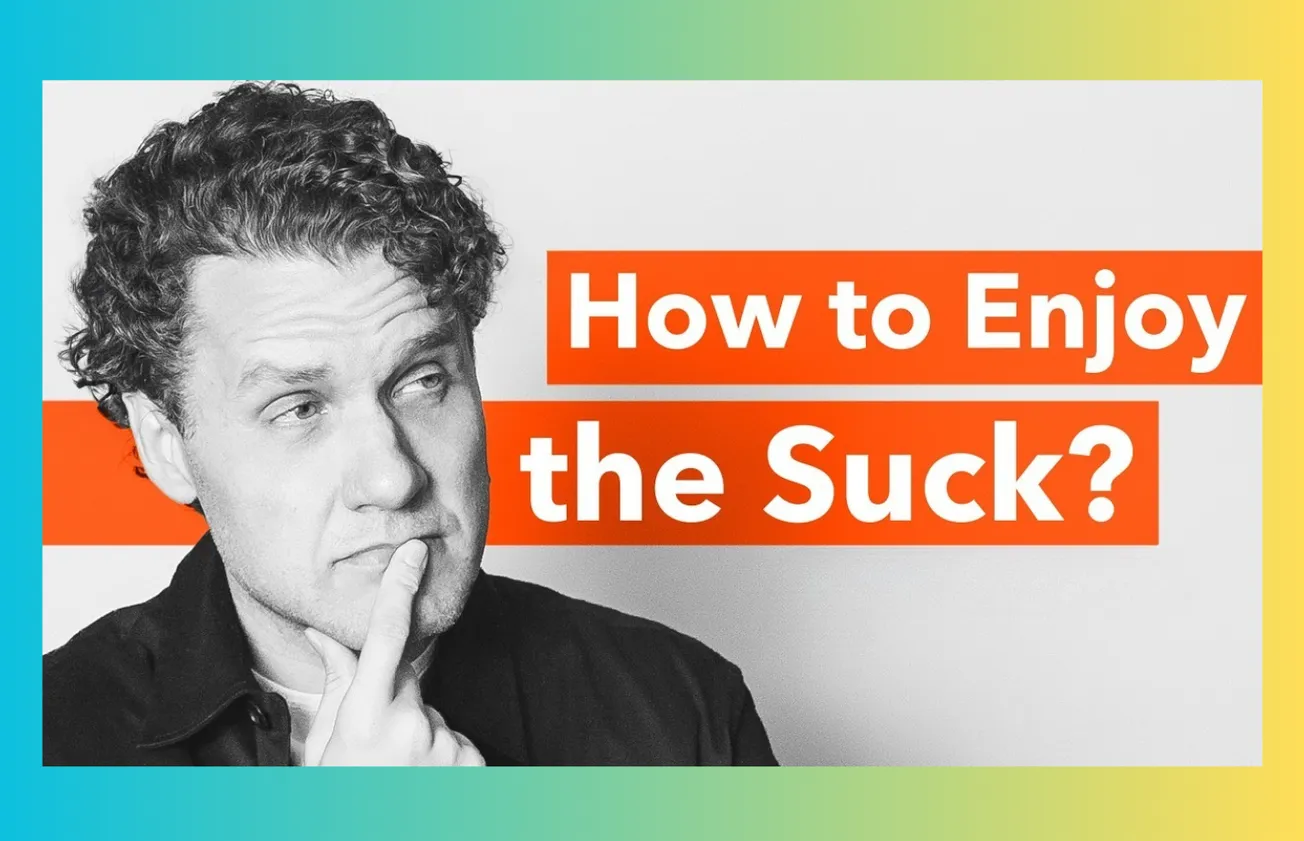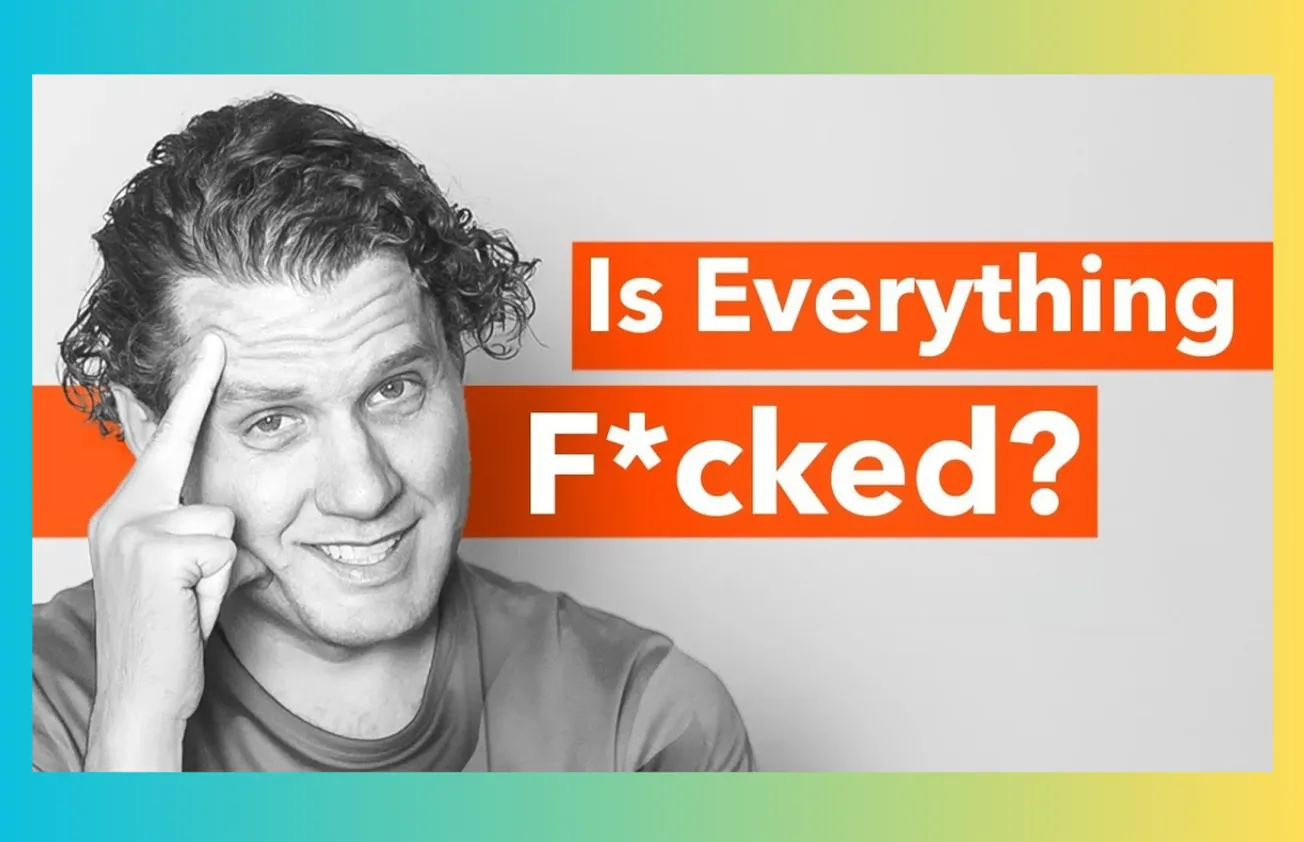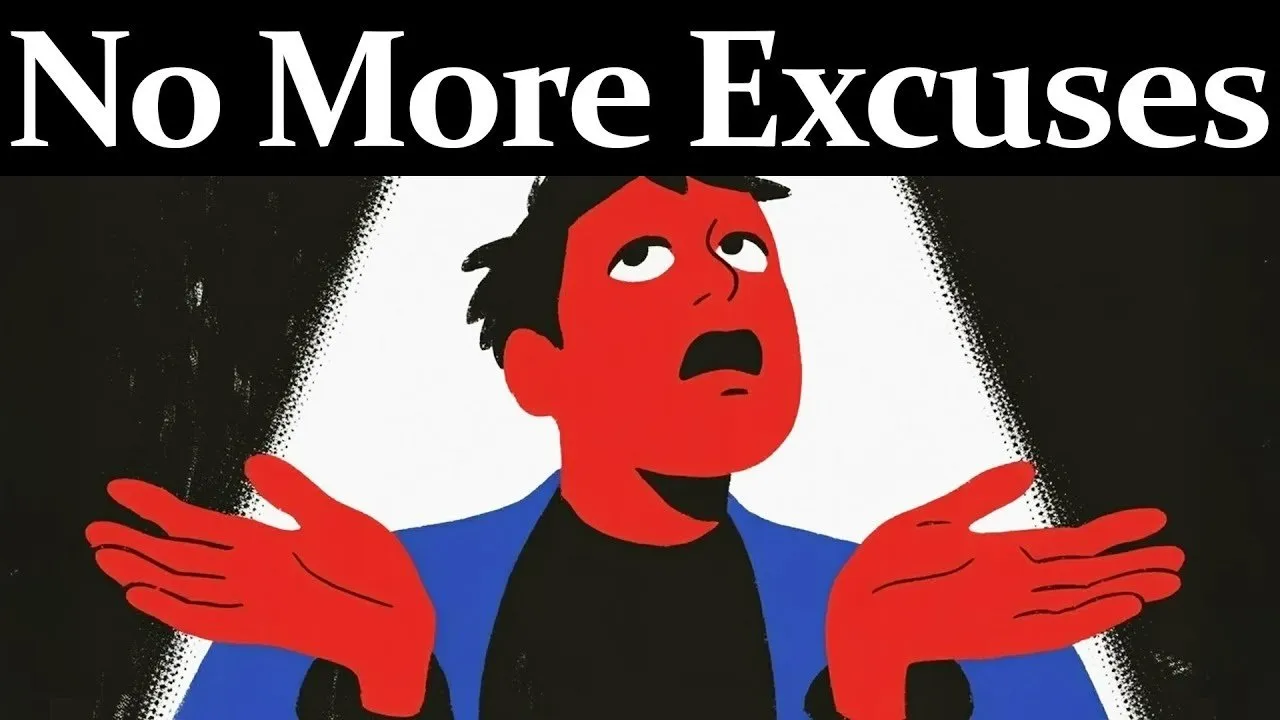Table of Contents
From crash diets to cold truth, this is a brutally honest breakdown of what it takes to reclaim your health—mentally, physically, and permanently.
Key Takeaways
- Weight loss isn’t linear; it’s psychological warfare with your own habits and delusions.
- Crash tactics fail. Progress comes in plateaus, breakthroughs, setbacks, and internal shifts.
- Tracking food reveals self-deception. You can’t improve what you lie about.
- Environment matters more than willpower. Change your surroundings, change your behaviors.
- Exercise doesn’t erase a bad lifestyle. Consistency and recovery beat intensity.
- Genetics load the gun. Lifestyle pulls the trigger.
- The goal isn’t abs. It’s feeling good enough to stay alive and live fully.
- Self-compassion is the catalyst—not the consolation prize.
- You don’t need a perfect plan. You need one you’ll actually do, for years.
From Oblivious to Obese: The First Wake-Up Call
- Mark grew up in 1980s Texas on Cocoa Puffs, Domino's, and zero nutritional education. As a kid, he was always slightly overweight. But that evolved into full-blown obesity by his 30s.
- In his twenties, vanity fueled just enough exercise to stay attractive—but with drinking, late nights, and no long-term health planning.
- By 35, stress from writing two books, drinking Red Bulls, and nonstop travel led to chest pains. Medical scans were clear, but his doctor told him: "You're a ticking time bomb."
- Vanity met mortality. A world tour and book launch put Mark on stages around the world—and into his first real effort to lose weight. He dropped 15 pounds in 4 months by cutting desserts and running.
- But the root habits didn’t change. The progress stopped. A six-month plateau followed. He was still unhealthy, tired, and stuck.
- The scariest realization: he didn’t feel in control of his own body. He felt like a passenger on a slow ride to burnout.
Delusion Runs Deep: How We Lie to Ourselves
- Mark admits: most unhealthy people live in denial. He told himself salads twice a week and occasional gym visits made him healthy.
- The real reason? A lifetime of lowered expectations. Compared to his past self, any minor change felt like progress.
- Doctors said, "I've seen worse." But if you compare to what's optimal for a man in his 30s, Mark's labs were horrifying.
- "I knew I was overweight, but I had no idea how bad it was. I deluded myself into thinking it wasn't that bad."
- He believed movement canceled food. He thought being busy meant being fit. He was wrong. Truth without numbers is fiction.
- Self-honesty wasn’t optional—it was the only door out.
CrossFit, Pain, and the Myth of Suffering = Results
- Early on, Mark joined a CrossFit gym, thinking harder workouts meant faster results. He punished himself multiple times a week.
- But he undid everything with late-night drinks, overeating, and bad sleep. "I murdered myself in the gym, then drank cocktails and slept till noon."
- The mistake: assuming suffering creates results. The truth: consistency beats intensity. And results compound slowly.
- Recovery became just as important as reps. Sleep was the most underrated macro.
- More pain didn’t mean more progress. It meant more inflammation, more fatigue, and more frustration.
- Once he stopped trying to “earn” food and started trying to “fuel” life, everything clicked.
The Power of Tracking: Numbers Don’t Lie—But You Will
- Hiring coach Dan Go changed everything. The first shift: consistent, manageable workouts.
- The bigger shift: tracking food. It exposed every lie Mark told himself about "eating light."
- That "healthy" salad? 1,200 calories with dressing, bacon, cheese, and eggs. Two brownies? Still two brownies, even if they're gluten-free.
- Tracking wasn't fun. It was accountability. It gamified the process for someone competitive. It also taught real nutrition basics—how much sugar, protein, and fat exist in every bite.
- He stopped guessing. He started learning. Macro awareness created macro shifts.
- Data was the enemy of denial. Once numbers entered the picture, excuses exited.
Relapse and Lifestyle Truths: Why Weight Came Back
- After the pandemic, Mark moved to LA. Freedom returned. So did travel, parties, and drinks. Within three months, he regained 16 pounds.
- "It undid five days of progress in one night." Sugar and alcohol, even within calorie limits, triggered setbacks.
- The revelation: not all calories are equal. Sugar wrecked his metabolism. Alcohol reversed weight loss. Lifestyle change wasn’t optional anymore.
- LA helped. Outdoor activity was the norm. Friends wanted to hike, run, sauna. A home gym erased excuses. Environment drove discipline.
- Instead of willpower, he leaned into systems: scheduled meals, standing workouts, automated grocery delivery.
- When the defaults are aligned, motivation isn’t needed as often.
Motivation Evolves: From Vanity to Vitality
- Early motivation: look better on stage. Over time: feel better in life.
- Exercise became enjoyable. Eating clean made the body feel right. Friends’ habits reinforced healthy ones.
- "I started associating strenuous activity with fun, social reward, and long-term energy."
- The shift from fighting yourself to building yourself began with re-framing pain as progress.
- Vanity may start the journey, but vitality sustains it. Eventually, you stop chasing mirrors and start chasing mornings where you feel amazing.
- When your why is anchored in life—not looks—it doesn’t fade.
The Hard Truth: It Might Not Be Your Fault, But It’s Your Responsibility
- After all the effort, Mark still wasn’t progressing. Lab work revealed his biological reality: low testosterone, pre-diabetes, and genetic conditions (hemochromatosis, double E4 gene).
- "If I didn't change, I'd probably be dead at 55."
- Functional medicine changed the game: treat root causes, not symptoms. But it was expensive, time-consuming, and inaccessible to many.
- "This is privilege. I want to be honest about that."
- Still—biology isn’t destiny. You don’t choose your starting line. You do choose your strategy.
- Every diagnosis became a data point. Every setback became an input. The question wasn’t “why me?” It was “what now?”
Addiction, Feedback Loops, and Self-Compassion
- Mark compared compulsive overeating to addiction. He ate out of boredom, anxiety, and emotion. And he didn’t realize how much.
- Visceral fat creates a hormonal cascade: less energy, worse sleep, higher hunger. The cycle feeds itself. Breaking it is brutal.
- Tracking helped break the denial. "I thought I ate six chocolates. It was 14. I had no memory of the rest."
- Genetics create ceilings and floors. Sympathy, not judgment, is essential. Some people are born gifted. Others are fighting a war from day one.
- Blame doesn’t build. Compassion does. He stopped moralizing food and started understanding triggers.
- He replaced shame with strategy. He started parenting himself instead of punishing himself.
The Virtuous Spiral: Getting Hooked on Feeling Good
- Now in his 40s, Mark isn’t chasing abs. He’s optimizing for longevity, strength, and stability.
- Skipping a workout feels like skipping a basic need. Eating junk makes the body crave nutrients again.
- The new spiral: clean food = better sleep. Better sleep = better training. Better training = sharper mind.
- He sees diet and fitness advice as incomplete. "It’s not about a program. It’s about learning your biology and psychology."
- The real trick? Find what sustains you. Build environments that align with who you want to be.
- When health becomes identity—not effort—sustainability follows. You stop trying. You start living differently.
You can’t outsource transformation. You have to live it, struggle through it, and stay with it even when it stops being sexy.

